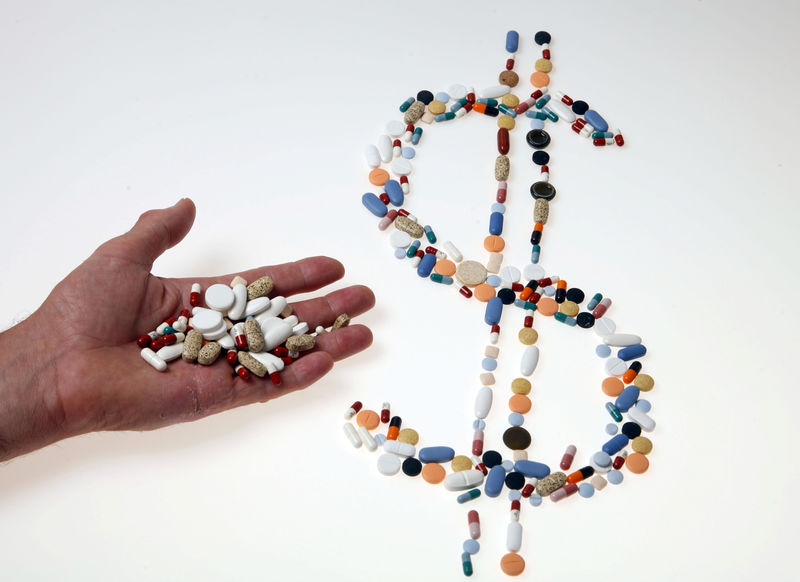(Reuters) - The main pharmaceutical industry lobbying group said on Thursday it and some drugmakers met with President Donald Trump to voice opposition to a bipartisan U.S. Senate bill that aims to lower prescription drug prices.
The White House, which has said it backs the legislation, has promised to bring down drug prices for U.S. consumers, an important campaign issue for Trump, a Republican, as well as for Democratic rivals vying to oppose him in the November 2020 presidential election.
Reuters reported on Wednesday that Trump is considering a sweeping executive order that would cut prices on virtually all branded prescription drugs sold to Medicare and other government programs, according to two industry sources who had discussions with the White House.
Medicare is the U.S. government program that provides health coverage to people aged 65 and older, or who are disabled.
The Senate bill moved out of the Senate Finance committee on Thursday morning and to the floor, the next step in the legislative process. White House spokesman Judd Deere tweeted on Thursday that it applauded the move.
PhRMA, the lobbying group, said in a news release on Thursday that the legislation was not the right approach to keep drug prices down and that it imposes harmful price controls in Medicare Part D, the program for self-administered prescription drugs.
It did not disclose which companies accompanied it to the meeting with Trump and was not immediately available for further comment.
Amgen Inc (NASDAQ:AMGN) confirmed that it had attended the meeting but declined further comment.
A source familiar with the situation said Pfizer (NYSE:PFE) was also present. A second source said U.S. Department of Health and Human Services Secretary Alex Azar was also there. Politico first reported about the meeting late on Wednesday.
The Senate bill aims to lower drug prices by forcing pharmaceutical companies to pay rebates to Medicare if they raise prices above the rate of inflation.

The proposal also suggests a cap on out-of-pocket costs for drugs covered under Medicare's Part D and changes to the program's Part B that covers physician-administered drugs.